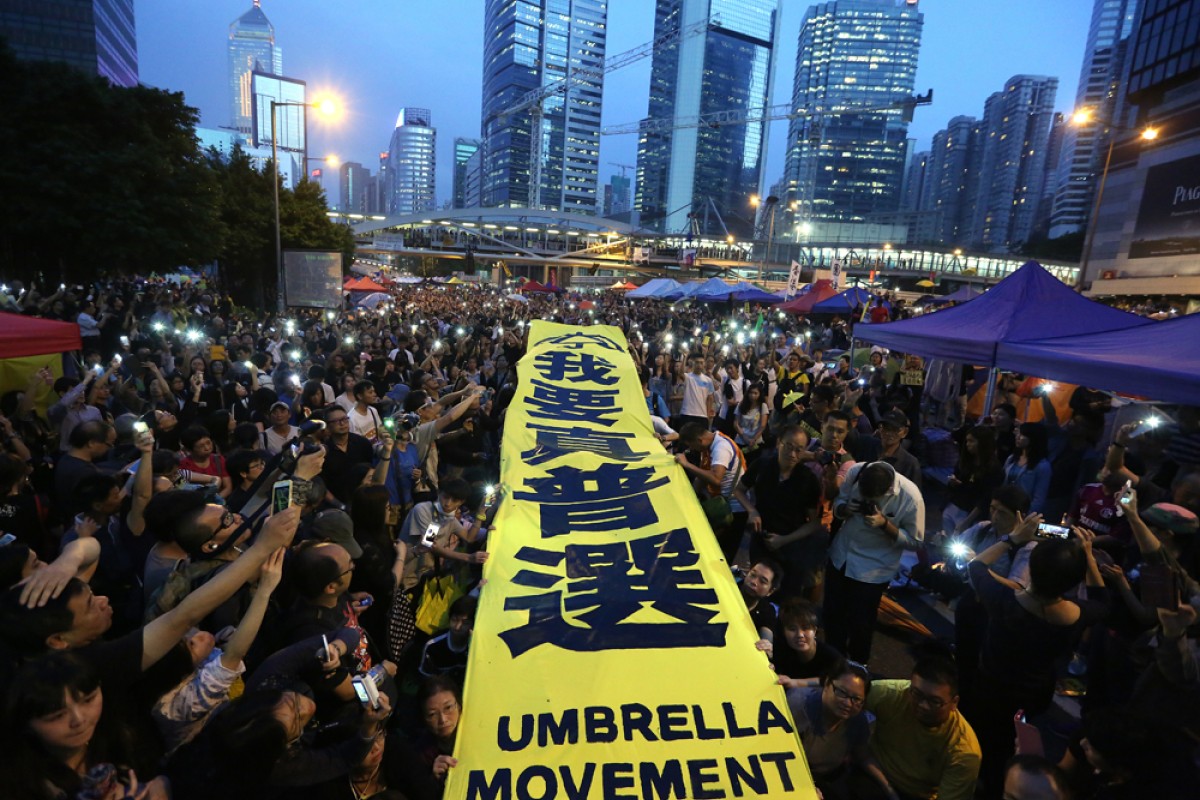
Let's consider the full cost of Occupy
 Protesters hold lights and banner saying "I want universal suffrage" in Admiralty .
Protesters hold lights and banner saying "I want universal suffrage" in Admiralty .With no end in sight to the Occupy Movement, one naturally begins to worry about the long term effects of the civil disobedience campaign – regardless of one’s political stance.
All of our lawmakers appear to be completely clueless about their next course of action. CY Leung seems to have gone into hiding, leaving Chief Secretary Carrie Lam Cheng Yuet-ngor and former Chief Executive Tung Chee-hwa to answer for him. The pro-Beijing lawmakers have remained largely mute in fear of public backlash, and the pan-democrats seem rather nonplussed after Secretary General of the Hong Kong Federation of Students Alex Chow Yong-kang publicly requested their resignation (in order to trigger a referendum) without consulting them prior to the announcement.
Although I believe that CY has done much more to alleviate poverty and cool down the property market than both of his predecessors, his resignation may be beneficial to Hong Kong’s future. The people’s discontent towards the government has surpassed manageable levels. If Leung continues to act as Chief Executive, he will be completely unable to govern the city and unable to avoid more Occupy-like demonstrations.
The economy is also bound to take a hit if the occupation continues any longer. Small businesses and some grassroots workers are already struggling to survive. When Beijing loses its patience, there are bound to be consequences that the Hong Kong economy will have to face. They might introduce new policies to prevent or discourage mainlanders from buying property in Hong Kong and cause a slump in the property market. They might even impose restrictions on mainlanders wanting to invest in the city’s stock exchange. Of course, there isn’t conclusive evidence to prove that the Central government would make such a decision, but it is something that we should be wary of.
Even if Hong Kong avoids “punishment”, the economy is destined to deteriorate by itself. The people are tired, disgruntled, and saddened over the political turmoil that has been brewing in the city. When consumers are unhappy, they tend to spend less money, causing a decline in the retail industry.
Business confidence is also another key factor: if it seems likely that the citizens of Hong Kong will repeat the civil disobedience movement, businesses may decide to locate elsewhere, as blocked roads don’t do wonders for keeping production costs down.
There is no way that the National People’s Congress is going to repeal their decision on the 2017 election reform. It is a reality that we will all have to face in time. Meanwhile, we should start to consider different methods to improve the economic effects of the movement and come up with new, more economically sensible ways to express our dissatisfaction towards the government.